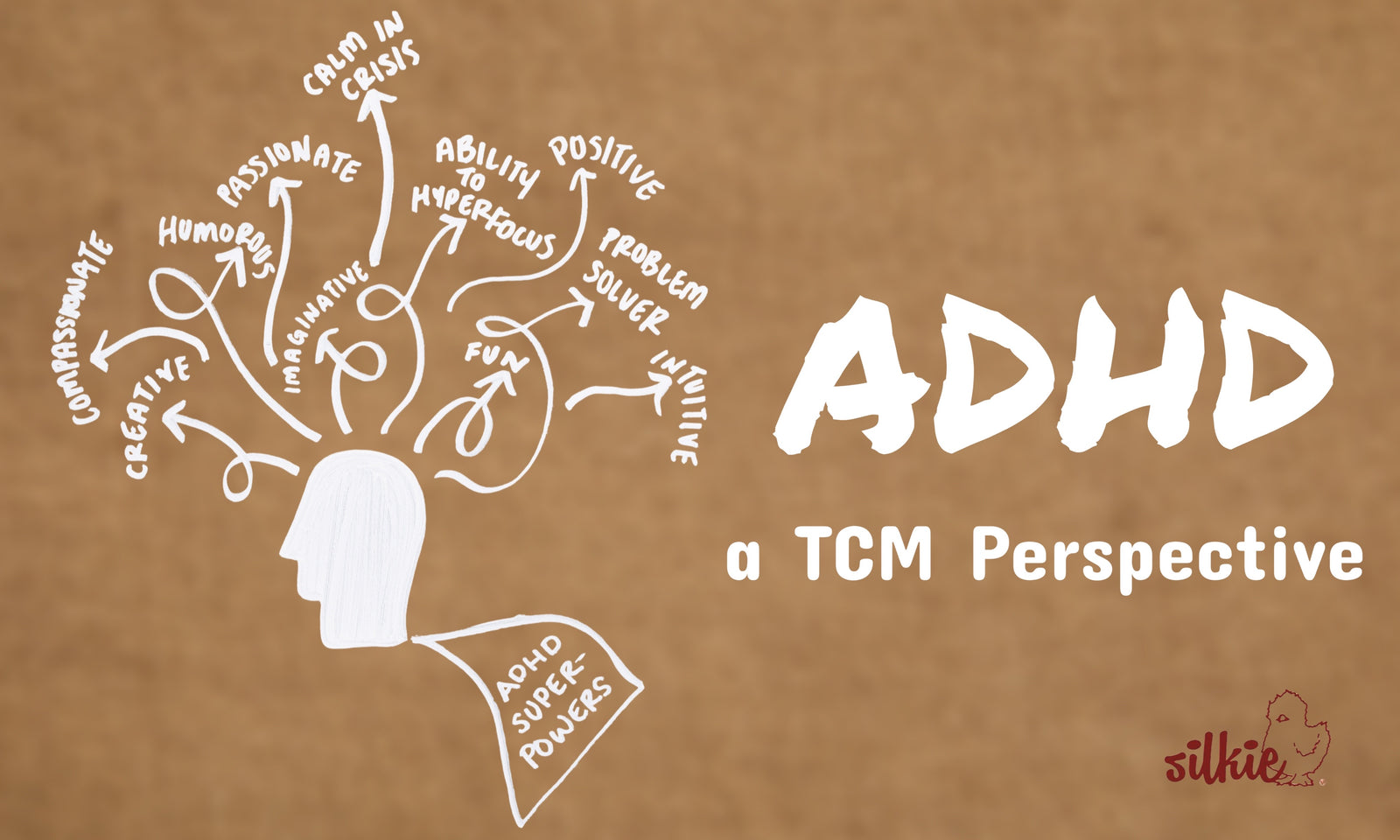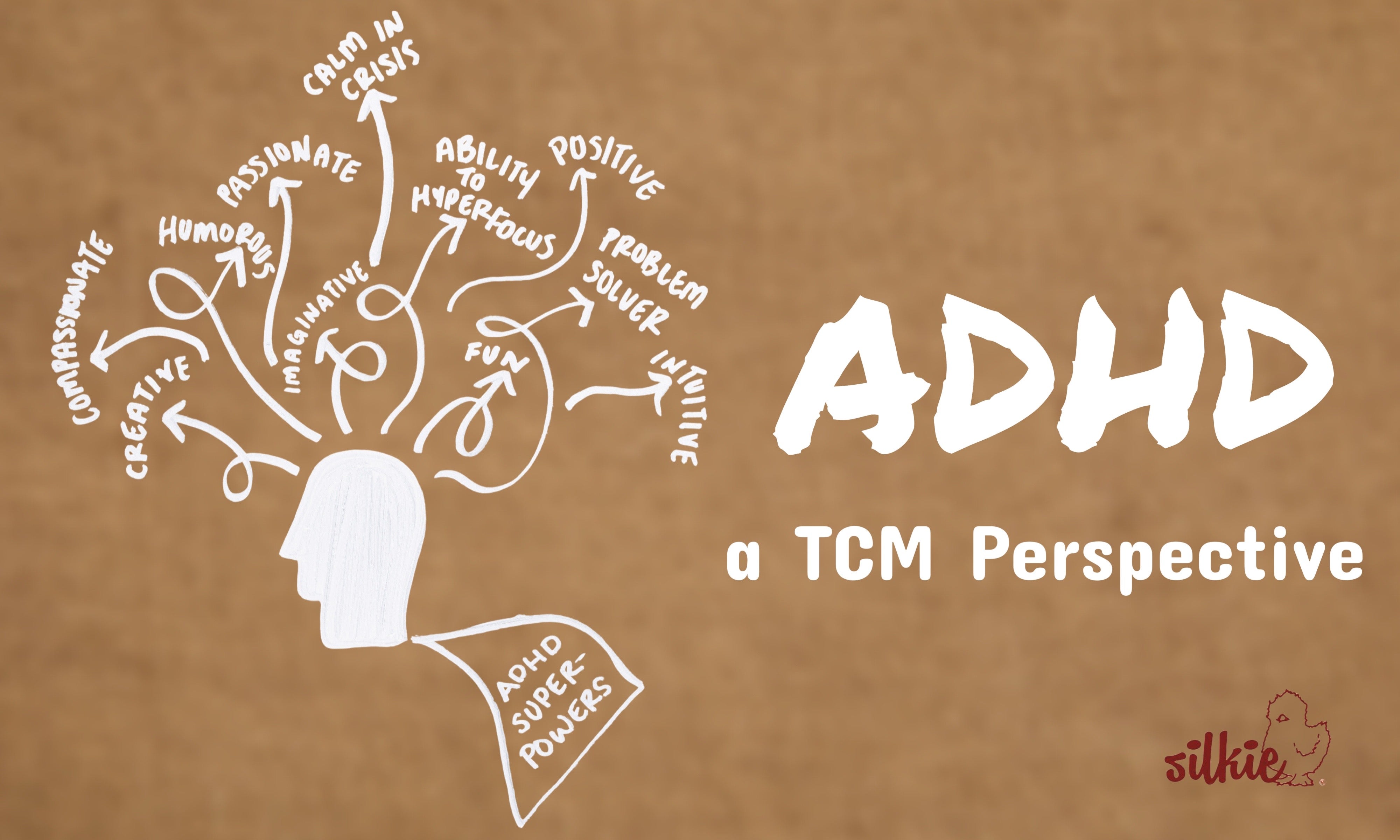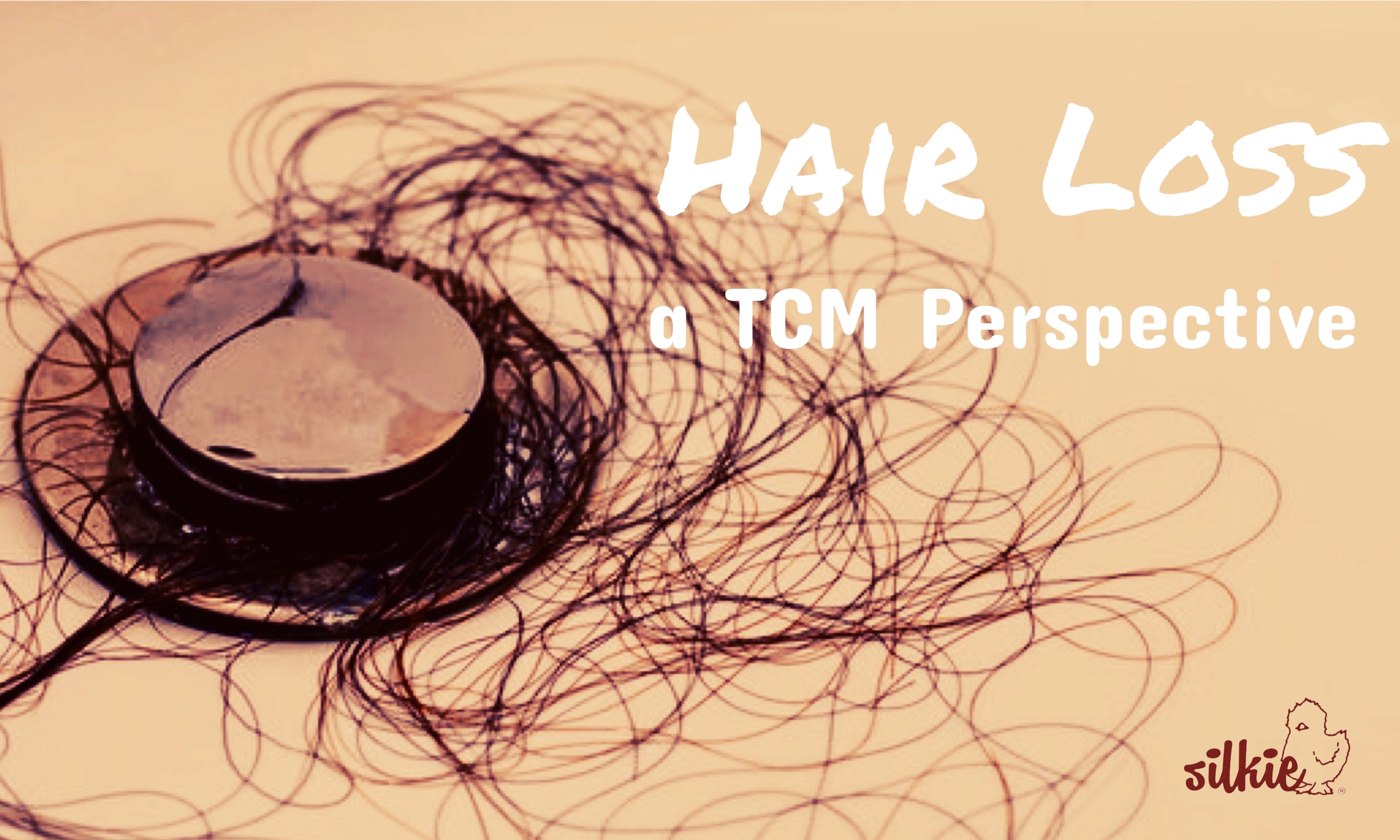Understanding A.D.H.D., Regular Distraction, Lack of Focus or Hyperfocus

By Ann Tam
Attention Deficit Hyperactivity Disorder (ADHD) is widely recognized for its impact on attention, impulsivity, and hyperactivity. However, understanding ADHD requires a deeper look at its various dimensions, including not just distraction and lack of focus, but also hyperfocus—a less understood but significant aspect. This comprehensive guide aims to unravel the complexities of ADHD in both adults and children, covering its causes, symptoms, and treatment from both Western medicine and Traditional Chinese Medicine (TCM) perspectives.
What is ADHD?
ADHD is a neurodevelopmental disorder that manifests through a persistent pattern of inattention, hyperactivity, and impulsivity. It affects both children and adults, though symptoms can present differently across life stages. ADHD can interfere with academic, social, and professional success, but with the right strategies and treatments, individuals can manage their symptoms effectively.
Types of ADHD
- Predominantly Inattentive Presentation: Individuals with this type struggle to maintain focus, often have difficulty organizing tasks, and frequently make careless mistakes.
- Predominantly Hyperactive-Impulsive Presentation: Symptoms include constant fidgeting, an inability to sit still, excessive talking, and acting on impulse.
- Combined Presentation: A mixture of both inattention and hyperactivity-impulsivity symptoms.
Distraction and Lack of Focus in ADHD
Characteristics of Distraction
Distraction in ADHD typically involves an inability to maintain attention on tasks or activities that require sustained effort. External stimuli, such as background noise, visual clutter, or interruptions, can easily divert focus, making it difficult to complete tasks. For children, this might look like zoning out during class, while for adults, it can result in missing deadlines or leaving tasks unfinished.
Impacts of Distraction
For both adults and children with ADHD, distraction can significantly impact performance in various life domains:
- Academic Challenges: Students with ADHD may struggle with completing homework, following instructions, and staying engaged during lessons.
- Workplace Productivity: Adults may find it hard to meet deadlines or prioritize tasks, leading to decreased productivity and career setbacks.
- Social Relationships: Constant distraction can also lead to misunderstandings in conversations and relationships, as the individual may appear disengaged or inattentive.
Coping Strategies
Effective strategies for managing distraction include:
- Using Organizational Tools: Planners, to-do lists, and task management apps can help create structure and minimize distraction.
- Time Management: Setting timers or breaking tasks into smaller, manageable steps helps maintain focus.
- Minimizing Environmental Distractions: Creating a workspace free from visual and auditory distractions can make a world of difference.
Hyperfocus: The Flip Side of ADHD
While ADHD is most commonly associated with an inability to focus, hyperfocus is another dimension often overlooked. Hyperfocus refers to intense, prolonged concentration on a specific task or activity, often to the exclusion of all else.
Benefits and Drawbacks of Hyperfocus
- Benefits: When channeled properly, hyperfocus can lead to incredible productivity, creativity, and deep learning. Many individuals with ADHD report being able to dive deeply into areas of interest or work projects, producing high-quality results.
- Drawbacks: However, hyperfocus can also lead to negative consequences. Individuals may lose track of time, neglect other responsibilities, and even forget to eat or sleep. It can be difficult to disengage from hyperfocus, creating problems in both personal and professional life.
Western Medicine’s Perspective on ADHD
Causes
From a Western medical standpoint, ADHD is believed to arise from a combination of genetic, neurobiological, and environmental factors:
- Genetics: ADHD tends to run in families, with studies showing a strong hereditary component.
- Neurobiological Factors: Brain imaging studies have shown differences in brain structure and function in individuals with ADHD, particularly in regions related to attention and impulse control.
- Environmental Factors: Prenatal exposure to toxins, smoking, or alcohol can increase the likelihood of ADHD. Early childhood experiences, such as exposure to stress or trauma, may also contribute.
Symptoms of ADHD
ADHD symptoms are categorized into three main areas:
- Inattention: Difficulty staying focused, forgetfulness, poor organizational skills, and making careless mistakes.
- Hyperactivity: Excessive talking, difficulty staying seated, and constant movement.
- Impulsivity: Interrupting others, blurting out answers, and struggling to wait for turns.
Diagnosis and Treatment
Diagnosing ADHD involves meeting specific criteria outlined in the Diagnostic and Statistical Manual of Mental Disorders (DSM-5). Symptoms must be present across multiple settings and must impact the individual’s functioning. A comprehensive evaluation includes behavioral assessments and input from caregivers, teachers, and medical professionals.
Treatment options include:
- Medication: Stimulants such as Ritalin and Adderall are commonly prescribed. Non-stimulants like Strattera may also be used.
- Behavioral Therapy: Cognitive-behavioral therapy (CBT) and parent training can help individuals with ADHD develop coping mechanisms.
- Educational Support: Modifications in the classroom, such as extended test times or preferential seating, can help students thrive.
Traditional Chinese Medicine (TCM) Perspective on ADHD
In Traditional Chinese Medicine (TCM), ADHD and related symptoms such as distraction and hyperfocus are viewed through the lens of Qi (life energy) imbalance and disharmony among organ systems.
Causes in TCM
- Qi Imbalance: Disrupted or stagnant Qi flow can result from emotional stress, poor diet, and environmental toxins. ADHD may be viewed as an imbalance in how energy is distributed throughout the body.
- Organ System Disharmony: TCM links ADHD symptoms to disharmony among the Liver, Spleen, Heart, and Kidney systems. For example:
- Liver Qi Stagnation: Can lead to irritability and restlessness.
- Spleen Qi Deficiency: Associated with poor concentration and mental fatigue.
- Heart-Kidney Imbalance: May manifest as hyperfocus or intense mental activity.
Symptoms in TCM
- Inattention: Often linked to Liver Qi stagnation and Spleen deficiency.
- Hyperactivity: Results from excess Qi or heat affecting the Heart and Liver meridians.
- Lack of Focus: Attributed to deficiencies in Qi and blood, particularly in the Spleen meridian, resulting in mental fatigue, forgetfulness, and disorganization.
- Hyperfocus: Seen as a disharmony between the Heart and Kidney systems.
- Hyperactivity While Sleeping: ADHD-related sleep disturbances vary between adults and children. Adults may experience tossing and turning, while children exhibit active movements like flipping around in bed. Addressing these sleep issues is crucial for managing ADHD symptoms and improving overall well-being.
Diagnosis and Treatment in TCM
Diagnosis in TCM involves pattern differentiation, assessing symptoms, and evaluating the balance of Qi. Practitioners often use tongue and pulse diagnosis to gather additional information.
Treatment options in TCM include:
- Herbal Medicine: Specific herbs like Chinese angelica root (Danggui) and white peony root (Bai Shao) are used to regulate Qi and harmonize organ systems.
- Acupuncture: Acupuncture points are used to restore the flow of Qi and balance affected meridians.
- Dietary and Lifestyle Changes: Recommendations may include Qi Gong or Tai Chi exercises, stress reduction techniques, and dietary modifications.
- Balancing Qi(energy) Utilization: In modern society, nearly 90% of people show signs of Qi imbalance. In Traditional Chinese Medicine (TCM), this refers to the energy used in physical and mental activities. Since the brain consumes about 20% of the body’s energy daily, excessive use can lead to depletion. Balancing energy expenditure is key to overall well-being in TCM.
The TCM vs. Western Herbalism Approach
Whereas Western herbalism tends to focus on single herbs or high-dose extracts, TCM uses combinations of herbs to treat the root cause of imbalances. These herbal formulations aim to harmonize the body’s organ systems, addressing not just symptoms but the underlying issues.
Silkie Herbs, for example, combines generations of experience in Chinese Medicine to create formulas that balance Qi and treat conditions related to ADHD, distraction, and hyperfocus. Using premium-quality herbs harvested at their peak potency, Silkie’s products are free from fillers and artificial ingredients, ensuring maximum therapeutic benefit.
Silkie Herbal Formulas for ADHD, Distraction, and Focus
Silkie offers specific formulas designed to manage ADHD and its related symptoms:
- For A.D.H.D., Regular Distraction, Lack of Focus Due to Qi Imbalance: Combine Energy Endurance 5 to 10 pills with Focus 5 to 10 pills in the morning or before mentally demanding tasks to alleviate stagnation and increase Qi flow, improving focus, concentration, and cognitive performance.
- For A.D.H.D. with Hyperfocus (Spleen Disharmony): Combine Calm 1 to 5 pills, Energy Endurance 1 to 5 pills with Focus 1 to 5 pills to harmonize organ systems before tasks that may induce anxiety or nervousness, promoting calmness and concentration under stress.
- For A.D.H.D. with Hyperactivity (Liver Disharmony): Take Sleep Ease (Mind) 5 to 10 pills before bed to calm excessive Heart Fire, reducing symptoms like irritability and restlessness, and improving concentration the next day.
- For A.D.H.D. with Hyperactivity While Sleeping (Heart and Kidney Disharmony): Take Focus pills at 7pm to address sleep disturbances related to disharmony of the Heart and Kidneys.
Conclusion
ADHD is a complex condition with multiple facets, including distractibility, lack of focus, and hyperfocus. Both Western medicine and TCM offer valuable insights into its causes, symptoms, and treatments. While Western medicine focuses on neurobiological and genetic factors, TCM views ADHD as a manifestation of Qi imbalance and organ system disharmony.
By understanding both perspectives, individuals with ADHD can explore a variety of treatment options, from medication and therapy to acupuncture and herbal remedies. With the right support, it’s possible to manage ADHD effectively and lead a balanced, fulfilling life.
For those interested in exploring TCM-based remedies for focus and attention, Silkie Herbs offers time-tested herbal solutions that harness the power of nature to restore balance and promote cognitive health.




